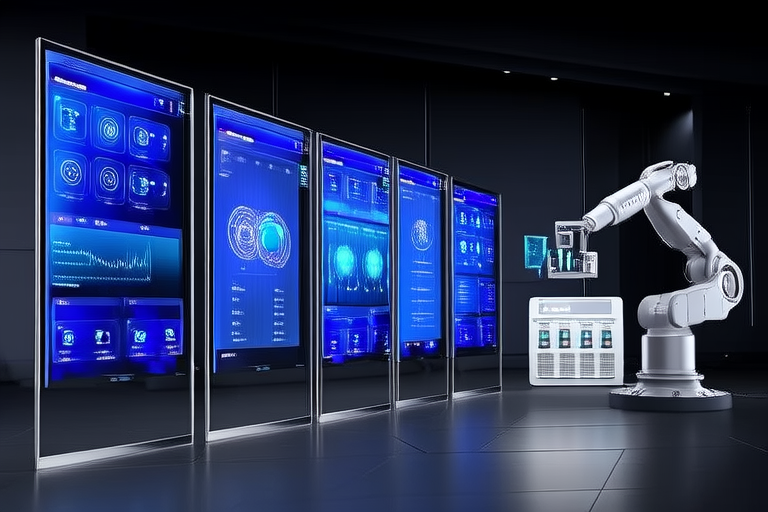From Healthcare to Finance: The Diverse Applications of AI
Introduction
Artificial Intelligence (AI), a subset of computer science that focuses on creating machines capable of performing tasks typically requiring human intelligence, has emerged as a transformative force across various industries. With its ability to process vast amounts of data, learn from patterns, and make predictions, AI is revolutionizing how businesses operate and solve complex problems. From healthcare to finance, AI’s versatility is reshaping industries, enhancing efficiency, and driving innovation. This article explores the diverse applications of AI, highlighting its impact in healthcare, finance, and other sectors.
Healthcare Applications
Transforming Diagnostics, Personalized Medicine, Drug Discovery, and Patient Care
In healthcare, AI is playing a pivotal role in diagnostics, personalized medicine, drug discovery, and patient care. AI algorithms can analyze medical imaging to detect diseases like cancer more accurately than human radiologists. For instance, IBM Watson for Oncology assists doctors in identifying treatment options by analyzing patient data and clinical guidelines. In personalized medicine, AI helps tailor treatments based on individual genetic profiles, enhancing efficacy and reducing side effects. Additionally, AI-driven drug discovery accelerates the development of new therapies by predicting molecular interactions and identifying potential drug candidates.
Challenges and Ethical Considerations
Despite its promise, AI in healthcare faces several challenges. Data privacy concerns arise when sensitive patient information is processed. Ensuring data security and compliance with regulations like HIPAA is crucial. Ethical issues include ensuring transparency in AI decision-making processes and addressing biases in algorithms. Moreover, integrating AI systems into existing healthcare workflows requires careful planning to avoid disrupting patient care.
Finance Applications
Fraud Detection, Algorithmic Trading, Risk Management, and Customer Service
In finance, AI powers advanced analytics to detect fraudulent activities, optimize trading strategies, manage risks, and enhance customer service. Machine learning models can identify unusual patterns in transactions, flagging potentially fraudulent activities before they cause significant harm. Algorithmic trading uses AI to execute trades at optimal times, increasing profitability and reducing market volatility. Risk management systems leverage AI to assess creditworthiness, predict defaults, and model financial scenarios. AI chatbots provide 24/7 customer support, answering queries and offering personalized financial advice.
Real-World Applications
Financial institutions and fintech companies have embraced AI to stay competitive. For example, JPMorgan Chase uses AI to automate loan underwriting processes, saving time and resources. PayPal employs AI to monitor transactional data and prevent fraud. Fintech startups like Betterment use AI to offer personalized investment advice to clients. These applications demonstrate AI’s potential to streamline operations, improve decision-making, and deliver better customer experiences.
Potential Risks and Concerns
While AI brings many benefits, it also poses risks. Data privacy and security are paramount concerns, as financial data breaches can lead to significant financial losses. Ensuring robust cybersecurity measures is essential. Additionally, the automation of financial processes may lead to job displacement, necessitating reskilling and upskilling programs for affected workers.
Other Industries
Manufacturing, Retail, Education, and Transportation
AI’s influence extends beyond healthcare and finance, impacting other sectors such as manufacturing, retail, education, and transportation.
Manufacturing
In manufacturing, AI optimizes production processes, enhances quality control, and predicts equipment failures. For example, General Electric uses AI to monitor turbine performance, reducing downtime and maintenance costs. AI-powered robots assist in assembly lines, improving efficiency and safety.
Retail
Retailers harness AI to personalize shopping experiences, optimize inventory management, and predict consumer behavior. Amazon uses AI to recommend products based on browsing history and purchase patterns. AI-driven chatbots assist customers with inquiries and facilitate purchases.
Education
AI supports personalized learning, automates administrative tasks, and enhances student engagement. Adaptive learning platforms like DreamBox Learning use AI to tailor lessons based on student performance. AI-powered grading systems reduce teachers’ workload, allowing them to focus on instruction.
Transportation
In transportation, AI improves traffic management, optimizes routes, and enhances autonomous vehicle technology. Companies like Waymo are developing self-driving cars that rely on AI for navigation and decision-making. AI algorithms analyze traffic patterns to reduce congestion and improve public transportation systems.
Future Outlook
Trends and Advancements Across Different Industries
The future of AI holds immense promise, with ongoing advancements expected to further transform industries. In healthcare, AI will likely play a more prominent role in genomics research, enabling breakthroughs in personalized medicine. In finance, AI-driven robo-advisors may become more sophisticated, offering tailored investment strategies. Manufacturing will see increased adoption of AI-powered robotics and automation, leading to smarter factories. Retailers will continue to leverage AI for enhanced customer experiences, while education will benefit from AI-driven adaptive learning platforms.
Potential Impact on Job Markets and Society
The widespread adoption of AI may disrupt traditional job markets, leading to shifts in employment. While some jobs may become obsolete, new opportunities will emerge in fields like AI development, data analysis, and AI ethics. Reskilling and upskilling programs will be crucial to help workers transition to these new roles. Societal impacts include improved healthcare outcomes, enhanced financial services, and more efficient transportation systems. However, addressing ethical concerns and ensuring equitable access to AI technologies will be essential for a positive societal impact.
Conclusion
AI’s diverse applications across healthcare, finance, and other industries underscore its potential to drive innovation and improve efficiency. From diagnosing diseases to managing financial risks, AI is reshaping how we approach complex problems. As AI continues to evolve, its impact on job markets and society will be profound. By embracing AI responsibly and addressing associated challenges, we can harness its full potential to create a brighter future.




